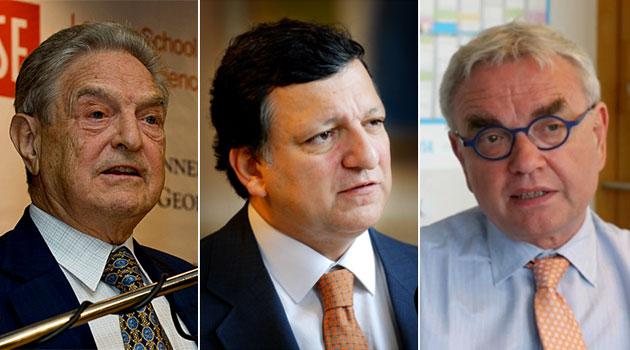In a
video produced by the Council of Europe and posted to YouTube this week,
Ulrich Bunjes, the Special Representative for Roma Issues, discusses the idea of
creating a European Roma Institute (ERI). Outgoing Commission President Barroso
and George Soros announced plans for such a development at the EU Roma Summit
this past spring in Brussels.
In the clip, Bunjes praises the work of Soros’ Open Society Foundations and its
approach to Romani issues in Europe, calling it “innovative”. However, he also
says many basic questions about the ERI remain open, such as what it will be
tasked with doing, what its structure will be, and how it might be financed.
Initial strategy documents describing the ERI discuss the need for “a
more pan-European response” to Romani inclusion while acknowledging the many
international organizations already engaged in such efforts. The documents
propose establishing the ERI along the lines of the Council of Europe’s
Cultural Routes program and envision a staff of anywhere between five to 15
people.
Proposals for its work range from “fight[ing] anti-gypsyism at European scale”
to “intellectual
investigation, artistic and cultural production”..
In the video clip just released, Special Representative Bunjes notes that
avoiding duplication will be a key issue for the ERI, which needs to clearly
identify how it might be of added value to the existing array of both
governmental and non-governmental organizations working on Romani issues in
Europe. He also says that “at least a tentative conclusion” about the way
forward for the ERI should be reached in the fall, when the Council of Europe is
planning to release an analysis of its own Roma strategy and the four years of
its work since the adoption of the
Strasbourg Declaration on Romaa.
The Scientific Committee of the
European Academic Network on Romani Studies (RAN), a joint project of the
Council of Europe and the European Commission that has been running since 2011,
issued a statement in April on the proposed ERI. The committee emphasized that
quality assurance of the institute’s work should be key and recommended the
Council of Europe “recognize the value of skilled and certified academic
expertise and not … conflate research and the promotion of information and
knowledge with advocacy and political representation.”
Depoliticizing the production of knowledge about Romani people is an extremely
sensitive issue. Due to their overwhelming marginalization, Romani people remain
underrepresented in European academic and political life, and the issue of
Romani participation and representation in the life of public institutions was
often raised by civil society during the recent Roma Summit in Brussels. Several
Romani public intellectuals reached for comment by Romea.cz expressed their
doubts over whether the proposed structure for the ERI would sufficiently
guarantee Romani involvement in and leadership of it and said the development of
the idea for the ERI had not been as transparent as they would have liked.
Yaron Matras, a linguist at the University of
Manchester specializing in Romani and other languages, said that in his view it
would be “bizarre” for such an institute to be housed inside a political
organization such as the Council of Europe, especially if part of its focus is
to be on Romani culture. “You would never, for example, create a ‘European
Celtic Institute’ under the auspices of such a political organization,” he said,
adding that there needs to be much more basic mainstreaming and promotion of
Romani studies as an academic discipline in general.
The
European Roma and Travellers Forum, an NGO whose Secretariat is housed on
the premises of the Council of Europe in Strasbourg, issued the following
statement regarding the proposal:
“Such a project should avoid the folklorization and ghettoization of Roma
culture. We are of the opinion that Roma culture is and must remain the property
of Roma communities, and those cultural activities should be led at grassroots
level and not centralized under the auspices of an international political
organization. The Council of Europe and other bodies can provide valuable
support and inspiration to such activities. But we must avoid any top-down
imposition of a standard culture which would risk denying the rich pluralism of
genuine Roma traditions.
The ERTF will continue to be an enthusiastic and reliable partner for any
initiative that promises to promote Roma culture and the respect and tolerance
that it deserves. But at this point we are unable to express our support for
this initiative. We look forward to being involved in further consultations.”
VIDEO
